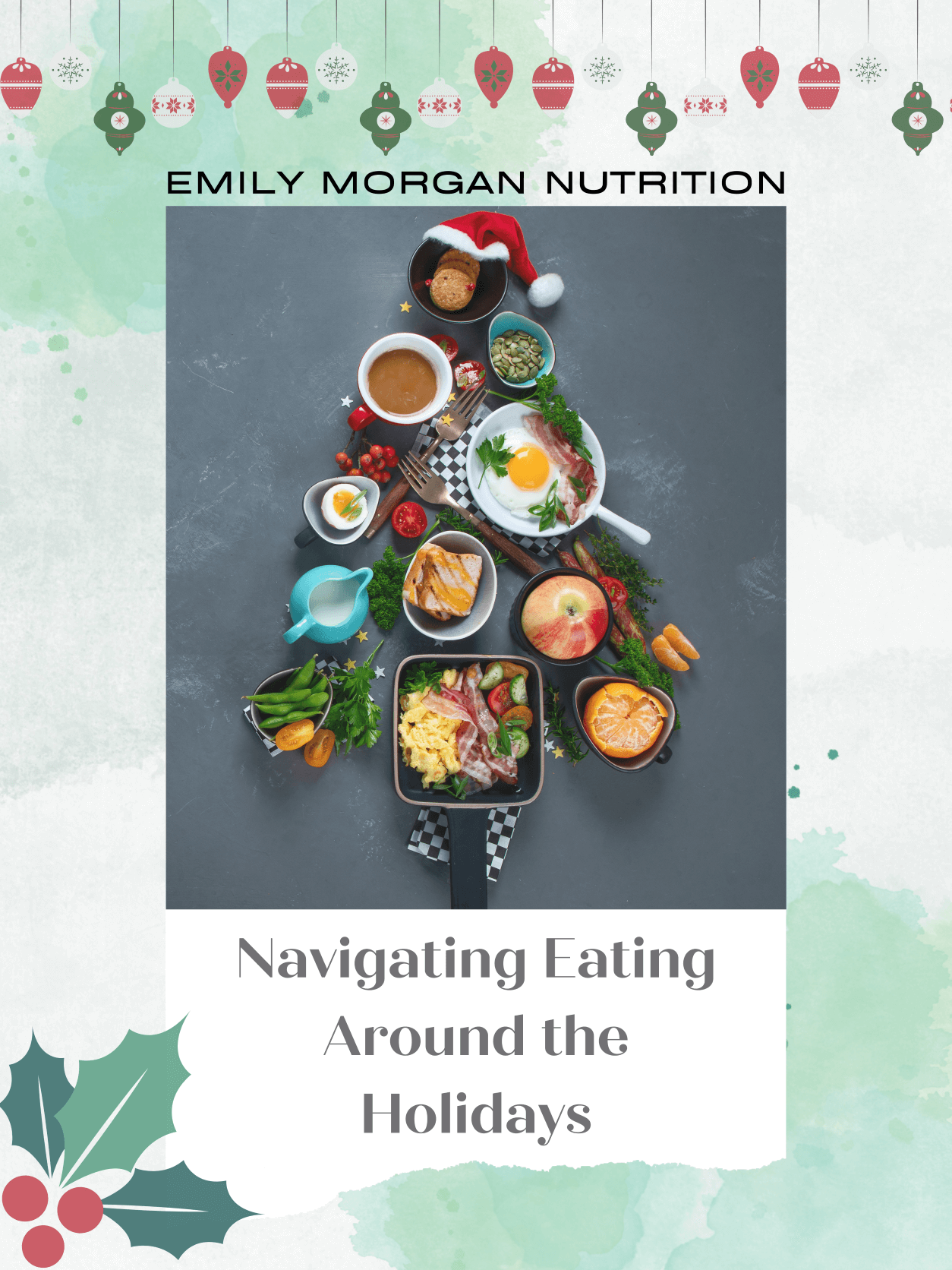Navigating Eating Around the Holidays
With the upcoming holidays, it can be overwhelming when trying to navigate what and how to eat the different foods. When families and friends come together and bring many different food choices, you may often feel pressure to try everything. It can be especially difficult when you are in an environment with little control over the menu during a time when you are working on your relationship with food. Here are some tips to help feel less pressured, not overeat, and properly fuel your body during the holiday season.
Interested in working with a registered dietitian to help guide you through healthy eating patterns both during and after the holiday season? Book a free phone consultation to learn more here!
1. Don’t Skip Meals
Often, we hear of people skipping breakfast or lunch to “prepare” for their later meals. This is not ideal if this is not what your body is used to. By skipping meals, you can do more harm than good. For example, skipping breakfast will likely lead to a higher intake at lunch and dinner of foods more calorically dense. Additionally, if eating breakfast is in your normal routine, you will feel increased hunger come lunchtime and may be more inclined to snack on sugary or starchy foods. Eating a nutrient-rich breakfast full of protein, healthy fats, and fiber is the best way to prepare your body for a good holiday meal. Some good choices include eggs, a smoothie, or yogurt with fruit.
2. Set Boundaries
Boundaries are important every day, but especially when you are on your own food journey. It is more than okay to try whatever you want, but if there is something that isn't speaking to you, it is okay to say no. Establishing clear boundaries helps you feel in control and maintain your goals. It is also important to try to listen to your body and try not to completely restrict yourself. The holidays are a special time to celebrate and enjoy food with loved ones.
3. Staying Hydrated
Staying hydrated may seem like a simple tip but is something that will help keep you satisfied &. Often people mistake thirst for hunger and reach for a snack instead of a glass of water. Additionally, by maintaining adequate hydration, you will help flush out some of the excess sodium that many holiday foods contain.
4. Choose a Balanced Plate
Choosing a balanced plate can sometimes feel daunting during the holiday season because of foods like desserts or bread-based dishes. One way to maintain balanced portions is to first fill your plate with protein and vegetables. For the protein, this may include eggs, chicken, turkey, beef, pork, or plant-based protein such as chickpeas, beans, lentils, or nuts and seeds. Good vegetables to incorporate may include broccoli, peas, asparagus, brussels sprouts, carrots, or squash dishes.
5. Eat Mindfully
When it is time to eat, paying attention to your body is important. Without mindfulness, you may not be able to tell when your body is truly satisfied. Eating mindfully entails savoring your food and chewing each bite thoroughly, putting your fork down between bites to help slow yourself down, eliminating distractions (such as TV or being on your phone) to focus on conversations with your loved ones, and choosing smaller plates to help with portion control.
6. Walk for Blood Sugar Balance
One great tip to feel more energized and balanced after eating a large meal is to do some movement! It can be as simple as going on a quick 5-minute walk within 60-90 minutes after eating. This helps lower blood sugar and insulin levels to help your body prevent a glucose spike which can eliminate the “sugar crash” you may get after eating a large meal. This is because, during a walk, our muscles use fuel from our bodies to power it. The ideal fuel source is the most efficient, which happens to be the glucose in our blood.


